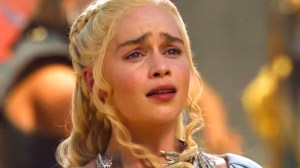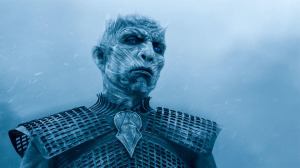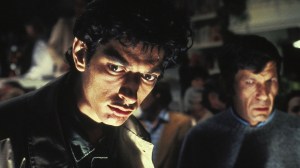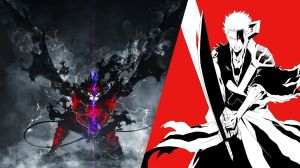Game of Thrones faced a mammoth task when adapting George R.R. Martin’s A Song of Ice and Fire books. The novels are epic in every sense, with such a sprawling set of characters, locations, and storylines that it can be difficult to keep track of them. The HBO show inevitably had to make changes for the small screen, and actually got a lot of things right. Game of Thrones‘ ending may be controversial, but the series had long since overtaken the books by that point. When it was more directly adapting Martin’s source material, it had a stronger handle on things.
Videos by ComicBook.com
Still, it’s perhaps a misconception that Game of Thrones only started to mess up when it ran out of books to adapt. There were clear issues before then: Season 5 is a notable warning sign, as it reduces down a lot of A Feast for Crows and A Dance with Dragons. And while some characters were brilliantly handled, others didn’t fare well in the translation to the page. Long before “off-book” moments such as Daenerys Targaryen burning King’s Landing and Jaime Lannister going back to Cersei were sparking backlash in Season 8, the show made major mistakes with a few characters despite having the books to work from, to the point that they were almost unrecognizable and ruined.
4) Loras Tyrell

Loras Tyrell isn’t a main character in A Song of Ice and Fire by any stretch, but he is an important one. Incredibly skilled with a sword, arrogant to boot, and in love with someone he can never publicly be with, he serves as a mirror of Jaime Lannister, reflecting back what he is and what he could’ve been. And like Jaime, there’s a tragedy underscoring Loras’ arc, even if his relationship with Renly Baratheon is mostly only hinted at, rather than being foregrounded. This poignant quote, when asked by Tyrion Lannister why he joined the Kingsguard when it means he can’t marry, is a beautiful summation of his love for Renly, and the continued pain of his loss: “When the sun has set, no candle can replace it.”
That line didn’t make it into Game of Thrones, and it’s almost impossible to imagine the show version of Loras even thinking it, let alone being given the time to say it. The character was reduced to a single character note: he’s gay, and that’s it. But rather than being a positive step for representation, it lost all that’s so great about the character. There was no depth to its exploration of his sexuality and relationship with Renly, from whom he moved on incredibly quickly in the show.
While it briefly nodded towards his skill, there was little of the great warrior (one of the best swordsmen in all of Westeros) and tactician we see in A Song of Ice and Fire. We don’t get the balance of a chivalrous, courteous knight, like something straight out of a song, with the arrogance and impetuousness that comes from being so good, so young. We don’t really get much of anything in terms of characterization, really, which is a massive shame.
3) Stannis Baratheon
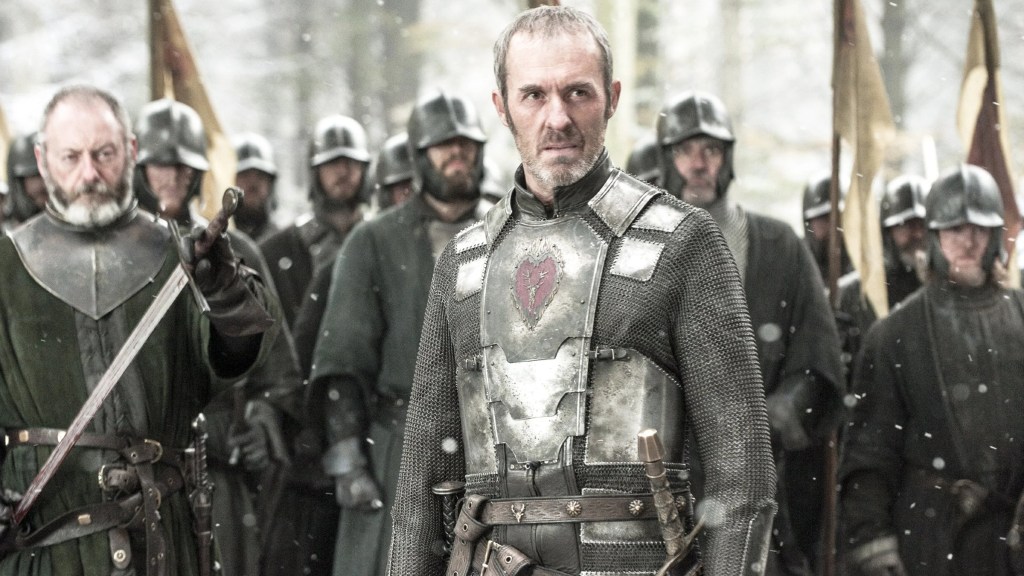
Stannis Baratheon is a fantastic character in A Song of Ice and Fire, and while he’s not an entirely bad one in Game of Thrones, it misses out so much of the nuance of his story, especially as it gets towards the end. In the book, Stannis is a man very much driven by duty: he does not want the Iron Throne, so much as he 100% believes that he is duty-bound to be king, and to do anything less than take it would itself be a terrible crime.
He is uncompromising, stern, and demands justice, but he’s also not uncaring, whether that’s for his men or his daughter. And what’s so fascinating is the juxtaposition of that alongside his belief in the Lord of Light; of how Melisandre’s religion rubs up against and fuels his drive to do what he thinks is right, but without completely overshadowing it. The TV show stripped away a lot of his more humanizing and complex elements, increasingly making him into a zealot who was defined by his relationship with Melisandre and ambition for the throne.
One change highlights this quite neatly: in the books, Stannis has Alester Florent imprisoned for treason (and he’s later burned to death); the show swaps this to Axell Florent being killed because he won’t renounce the Faith of the Seven. It’s minor in terms of characters and impact on the overarching story, but it does show the shift in approach and focus. Stannis will likely be a tragic character in the books. And, ultimately, he should serve as a warning sign of Daenerys’ arc, of what belief in duty and your right to rule, meshed with prophecy, can drive a person to. But it’s almost all lost in the show.
2) Doran Martell
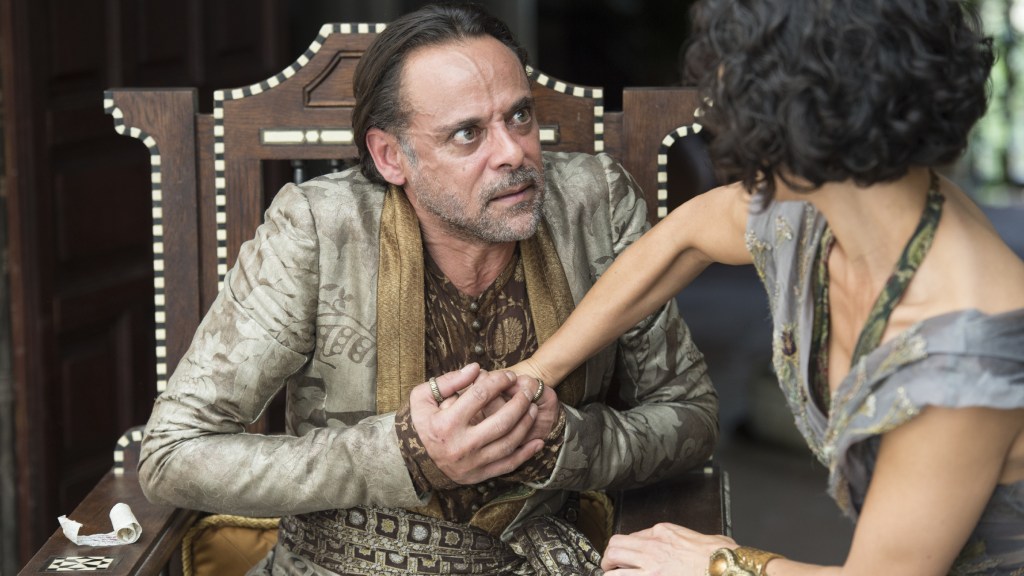
Honestly, this entry could simply be titled “Everyone in Dorne.” That story actually started rather brilliantly in Game of Thrones, with Pedro Pascal’s Oberyn Martell one of the show’s best single-season characters. But after his death, things took a complete turn, and the plot line stands as one of the show’s biggest adaptation failures, with the overarching narrative and characters like the Sand Snakes completely mishandled. But it’s something Doran in particular encapsulates.
In A Song of Ice and Fire, Doran is perceived as a weak and passive man, but it’s all a ruse. He’s actually been playing a very long game, gradually plotting his revenge against the Lannisters for the death of his sister, Elia, and her two children at the end of Robert’s Rebellion. It’s incredibly detailed and shows him to be a man of great cunning and strategy, and not only brings the Martells into the game, but gives them multiple avenues to reach new levels of political power and a path to the Iron Throne.
Game of Thrones got one part of Doran right, making him look weak, passive, and indecisive. Unfortunately, that’s where it ends, as though the writers stopped reading anything about him after that initial description. There is no greater plot, several key characters were cut from the show altogether, and in what’s essentially an admission that they messed up Dorne and want to get it over with, he’s killed off extremely quickly at the beginning of Season 6.
1) Euron Greyjoy
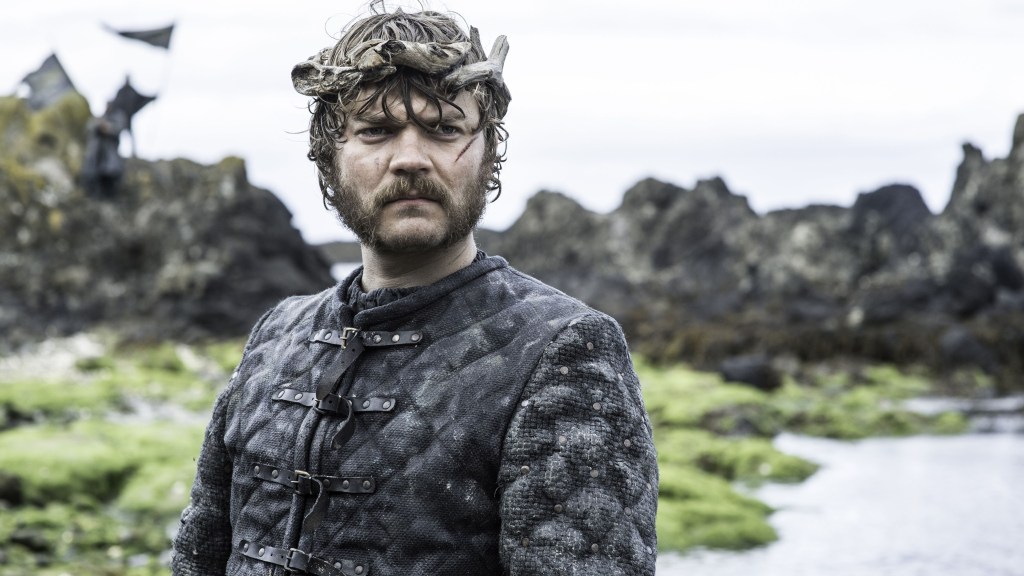
For anyone who hasn’t read the books, it may be hard to convince them of just how great a character Euron Greyjoy is. He’s one of the darkest, most intriguing characters in the series heading into The Winds of Winter, and one whose plans and ambitions could change the very fabric not only of the battle for the Iron Throne, but all of Westeros itself. He’s a ruthless madman, incredibly evil and vicious, whose goals seemingly extend far beyond the Iron Throne, and he’ll stop at nothing to achieve them.
Euron is where Martin unleashes some of his most nightmarish ideas, and where we can see some clear Lovecraftian inspiration in the series. He increasingly dabbles in the dark arts, he wants to steal a dragon, and he doesn’t just want control of Westeros, but find a much greater dominion over it: to essentially become a God, having unleashed an eldritch apocalypse upon the known world. That’s not to say he’ll achieve all of that, but the ambition is truly horrifying, and yet utterly captivating to read about.
Game of Thrones‘ Euron is like an R-rated Jack Sparrow ordered from Wish. He wasn’t so much watered down from the books as he was drowned and replaced with an almost completely different character, and no God was saving him. He’s a caricature who might have a little of the madness, but none of the threat that comes with it. In the final couple of seasons, he was reduced to wanting little more than to have sex with the queen, but even before then, when it did still have book material to work with, it was a shallow imitation of one of A Song of Ice and Fire’s most terrifying characters.
All eight seasons of Game of Thrones are available to stream on HBO Max.

